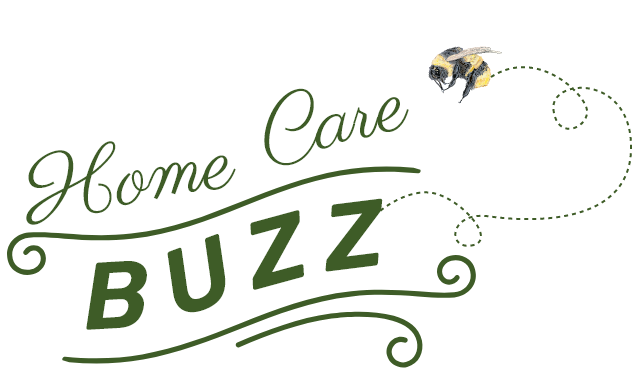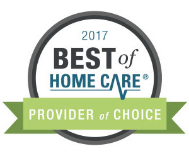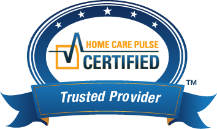Identifying When Your Aging Loved One Needs Help At Home

Admitting the need for assistance and accepting it isn’t easy for people as they age. So, how will you know when your aging loved one needs help at home? One thing is certain, your loved one is not likely to be the one who tells you.
Seniors strongly desire to remain independent and retain control of their lives for as long as possible. Typically, an older adult will downplay or hide any issues they’ve been experiencing until an accident or sudden decline in their health makes it plain that they need assistance. Since adult children are often unable to participate in making care decisions before a crisis takes place, the added stress of an unexpected hospitalization or fall complicates things even further.
Avoid being caught off guard. Start regularly monitoring your loved one’s physical and mental abilities, encouraging proper legal and financial planning, and researching long-term care options. These steps will ensure you’re prepared should your loved one begin to show signs of needing help.
Signs your elderly parent needs help
Look for these common indicators that an older adult may need help at home or an increased level of care.
Difficulty performing activities of daily living
- Bathing and grooming
- Dressing
- Toileting
- Continence
- Walking and transferring
- Eating and drinking
Changes in physical function and appearance
- Noticeable weight loss due to poor diet and/or difficulty cooking, eating, shopping for food, etc.
- Wearing soiled clothing or dressing inappropriately for the season/weather due to difficulties dressing.
- Poor personal hygiene and unpleasant body odor result from infrequent showering or bathing.
- Unkempt hair, untrimmed nails, or poor oral hygiene indicate a noticeable decline in grooming habits and personal care.
- Bruises, wounds, or other marks on the body could indicate falls or changes in mobility.
- Noticeable burns on the skin could indicate a senior is experiencing problems cooking.
Changes in behavior and mental status
- Lack of drive or motivation.
- Loss of interest in hobbies and activities.
- Difficulty keeping track of time.
- Failure to return phone calls to friends and family members.
- Changes in mood or extreme mood swings.
- Increased agitation.
- Verbal or physically abusive behaviors.
- Changes in sleep patterns.
Neglecting household responsibilities
- Inability to independently complete instrumental activities of daily living.
- Changes in household cleanliness and organization.
- Extreme clutter or evidence of hoarding.
- Stacks of unopened mail, late payment notices, or bounced checks.
- Unpaid bills, calls from collectors, or utilities being turned off.
- Spoiled food that doesn’t get thrown away.
- Stained or wet furniture or carpet.
- Urine odor in the house, which may indicate incontinence.
- Cookware or appliances with noticeable burn marks could indicate food has been left unattended while cooking or reheating.
Changes in cognition, memory, and judgment
- Forgetfulness.
- Increased confusion.
- Loss of reasoning skills.
- Consistent use of poor judgment.
- Difficulty performing familiar tasks.
- Frequently getting lost when walking or driving.
- Repetitive speech patterns.
- Inability to complete sentences.
- Impaired word-finding ability.
- Changes in personality or behavior.
- Poor personal hygiene and/or wearing the same.
- Inability to recall names of familiar people, objects, or places.
When to intervene with aging parents
So, you know the signs to look out for, but how do you really know when the right time is to intervene and seek help?
The truth is, deciding to hire help for an aging loved one looks different for everyone. You must trust your instincts. If you’re feeling burned out or are concerned your loved one’s health or safety could be in jeopardy, it’s probably time to seek help.
Hiring home care for aging parents
If you believe your aging loved one is exhibiting any warning signs, speak with them about their changing abilities and care needs. It’s best to discuss the future with aging parents sooner rather than later to ensure everyone is on the same page and avoid surprises. Broach the subject respectfully and in such a way that they can identify the underlying problem(s) and come up with solutions.
Keep in mind that these red flags don’t necessarily mean a move to assisted living or a nursing home is warranted. However, their presence does indicate that some daily supportive care is needed. For many families, hiring licensed home help allows older adults to stay in the comfort of their own houses for as long as safely possible.
If you recognize any of the warning signs in your aging loved one and find the need to introduce some assistance at home, contact Caring Companions At Home at 888-950-0750 for a free in-home assessment by one of our qualified Case Managers. We are a licensed home care agency celebrating 25 years of helping seniors in the community.

























